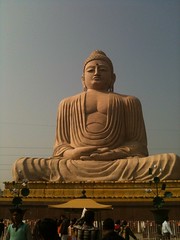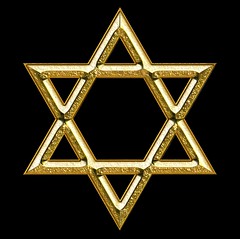| 12739275805 | Ahura Mazda | In Zoroastrianism, the good god who rules the world. |  | 0 |
| 12739275806 | Angra Mainyu | In Zoroastrianism, the evil god engaged in the cosmic struggle against good. |  | 1 |
| 12739275807 | Aristotle | A Greek polymath philosopher (384-322 BCE) student of Plato and teacher of Alexander the Great |  | 2 |
| 12739275808 | atman | The human soul, which in classic Hindu belief seeks union with Brahman. | 3 | |
| 12739275809 | Ban Zhao | A major female Confucian author of Han dynasty China (45-116 CE) whose works give insight into the implication of Confucian thinking for women. |  | 4 |
| 12739275810 | Bhagavad Gita | A great Hindu epic text. part of the much larger Mahabharata, which affirms the performance of caste duties as a path to religious liberation. | 5 | |
| 12739275811 | bhakti movement | An immensely popular development in Hinduism, advocating intense devotion toward a particular deity. |  | 6 |
| 12739275812 | Brahman | The "world soul" or final reality in upanishadic Hindu belief. | 7 | |
| 12739275813 | Brahmins | The priestly cast of India | 8 | |
| 12739275814 | Buddhism | The cultural/religious tradition first enunciated by Siddhartha Gautama |  | 9 |
| 12739275815 | Confucianism | The Chinese philosophy first enunciated by Confucius, advocating the moral example of superiors as the key element of social order. | 10 | |
| 12739275816 | Confucius | Kong Fuzi. The founder of Confucianism (551-479 BCE) an aristocrat of northern China who proved to be the greatest influence on Chinese culture in its history. |  | 11 |
| 12739275817 | Constantine | Roman emperor (306-337 CE) whose conversion to Christianity paved the way for the triumph of Christianity in Europe. |  | 12 |
| 12739275818 | Daodejing | The central text of Daoism; translated as The Way and Its Power. |  | 13 |
| 12739275819 | Daoism | A Chinese philosophy/popular religion that advocates simplicity and understanding of the world of nature, founded by the legendary figure Laozi. | 14 | |
| 12739275820 | filial piety | The honoring of one's ancestors and parents, a key element of Confucianism. |  | 15 |
| 12739275821 | Greek rationalism | A secularizing system of scientific and philosophic thought that developed in classical Greece in the period 600 to 300 BCE it emphasized the power of education and human reason to understand the world in nonreligious terms. |  | 16 |
| 12739275822 | Hinduism | A word derived from outsiders to describe the vast diversity of indigenous Indian religious beliefs |  | 17 |
| 12739275823 | Hippocrates | A very influential Greek medical theorist (ca. 460-ca 370 BCe) regarded as the father of modern medicine |  | 18 |
| 12739275824 | Isaiah | One of the most important prophets of Judaism, whose teachings show the transformation of the religion in favor of compassion and social justice | 19 | |
| 12739275825 | Jesus of Nazareth | The prophet/god of Christianity | 20 | |
| 12739275826 | Judaism | The monotheistic religion developed by the Hebrews, emphasizing a sole personal god (Yahweh) with concerns for social justice. |  | 21 |
| 12739275827 | karma | In Hinduism, the determining factor of the level at which the individual is reincarnated, based on purity of action and fulfillment of duty in the prior existence. | 22 | |
| 12739275828 | Laozi | A legendary Chinese philosopher of the 6th century BCE regarded as the founder of Daoism |  | 23 |
| 12739275829 | Legalism | A Chinese philosophy distinguished by an adherence to clear laws with vigorous punishments. |  | 24 |
| 12739275830 | Mahayana | "Great Vehicle", the popular development of Buddhism in the early centuries of the Common Ear, which gives a much greater role to supernatural beings and proved to be more popular than original (Theravada) Buddhism. | 25 | |
| 12739275831 | moksha | In Hindu belief, liberation from separate existence and union with Brahman. | 26 | |
| 12739275832 | nirvana | The end goal of Buddhism in which individual identity is "extinguished" into a state of serenity and great compassion. |  | 27 |
| 12739275833 | Plato | A disciple of Socrates whose Dialogues convey the teachings of his master while going beyond them to express his own philosophy (429-348 BCE) |  | 28 |
| 12739275834 | Pythagoras | A major Greek philosopher (ca. 560-ca 480 BCE) who believed that an unchanging mathematical order underlines the apparent chaos of the world. |  | 29 |
| 12739275835 | Saint Paul | The first great popularizer of Christianity | 30 | |
| 12739275836 | Siddhartha Gautama | (Buddha) The Indian prince turned ascetic (ca 566-ca486 BCE) who founded Buddhism. |  | 31 |
| 12739275837 | Socrates | The first great Greek philosopher to turn rationalism toward questions of human existence. |  | 32 |
| 12739275838 | Thales of Miletus | A Greek natural philosopher (ca 623-ca 547 BCE) noted for his application of reason to astronomy and for his questioning of the fundamental nature of the universe |  | 33 |
| 12739275839 | Theodosius | Roman emperor (r. 379-395 CE) who made Christianity the official religion of the Roman state, banning all polytheistic rituals. |  | 34 |
| 12739275840 | Theravada | "the Teaching of the Elders," the early form of Buddhism according to which the Buddha was a wise teacher but not divine and which emphasizes practices rather than beliefs | 35 | |
| 12739275841 | Upanishads | Indian mystical and philosophical works, written between 800 and 400 BCE |  | 36 |
| 12739275842 | Vedas | The earliest religious texts of India, a collection of ancient poems, hymns, and rituals that were transmitted orally before being written down ca 600 BCE |  | 37 |
| 12739275843 | Warring States period | Period in China from 403 to 221 BCE that was typified by disorder and political chaos. | 38 | |
| 12739275844 | yin and yang | Expression of the Chinese belief in the unity of opposites. |  | 39 |
| 12739275845 | Zarathustra | A Persian prophet, traditionally dated to the 6th or 7th century BCE who founded Zoroastrianism. |  | 40 |
| 12739275846 | Zhuangzi | A Chinese philosopher (369-286 BCE) who spelled out the teachings of Daoism. |  | 41 |
| 12739275847 | Zoroastrianism | Persian monotheistic religion founded by Zarathustra. | 42 | |
| 12739275848 | Zhou Dynasty | A decentralized Chinese dynasty in China because of the massive size which began in 1122 BCE and whose emperor was the first to claim to be a link between heaven and earth. Kong Fuzi and Laozi preached new religions/philosophies. Iron metallurgy increased. Fell to the Waring States period. |  | 43 |
| 12739275849 | Analects | The collection of Confucius's thoughts and sayings; most important text in Confucianism; stressed the moral example to be set by superiors and emphasized social relationships. |  | 44 |
| 12739275850 | Ren | Translated as human-heartedness, benevolence and goodness; nobility. The essential ingredient for a tranquil society in Confucianism. | 45 | |
| 12739275851 | Four Noble Truths | In Buddhism, the principles that rule life and promise an end to suffering (All life is suffering, suffering is caused by desire, to end suffering stop desiring, and to reach enlightenment follow the eight fold path. |  | 46 |
| 12739275852 | Laws of Manu | Hindu text that governed social life ("In childhood a female must be subject to her father; in youth to her husband; when her lord is dead to her sons; a woman must never be independent"). | 47 | |
| 12739275853 | Monotheism | The belief in one God most prominently practiced by Zoroastrians and early Jews that most influenced the early development of Christianity and Islam | 48 |
AP World Chapter 5 Flashcards
Primary tabs
Need Help?
We hope your visit has been a productive one. If you're having any problems, or would like to give some feedback, we'd love to hear from you.
For general help, questions, and suggestions, try our dedicated support forums.
If you need to contact the Course-Notes.Org web experience team, please use our contact form.
Need Notes?
While we strive to provide the most comprehensive notes for as many high school textbooks as possible, there are certainly going to be some that we miss. Drop us a note and let us know which textbooks you need. Be sure to include which edition of the textbook you are using! If we see enough demand, we'll do whatever we can to get those notes up on the site for you!

